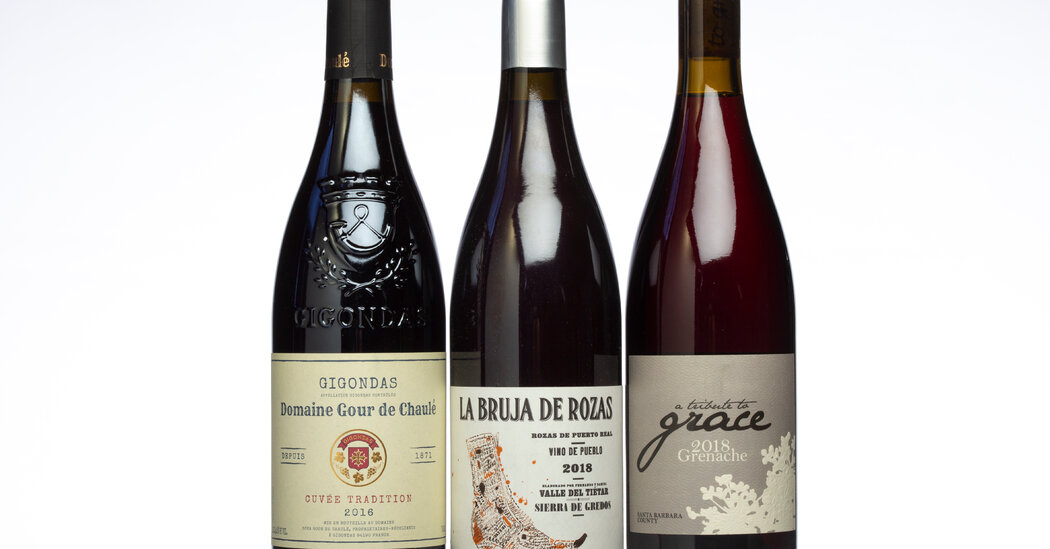How important is the choice of grape in determining the character of a wine?
Extremely important, obviously. But it is far from the sole factor. Soil and bedrock, climate, farming methods, altitude and inclination, intent of the winemaker — all the elements of terroir can be just as important.
Sometimes they can be even more so. Chablis and Sancerre, though made of chardonnay and sauvignon blanc, occasionally can be mistaken for one another, especially if they were both made from grapes grown on Kimmeridgian limestone, which can be found in both regions.
At the same time, wines made from identical grapes can often taste different, subtly so if the wines come from different parts of the same vineyard, and sometimes profoundly so if they come from different parts of the world.
This month we are going to taste three different wines made from a single variety of grape: If the wine is French, the grape is grenache; if the wine is Spanish, it’s garnacha. And it’s winemaker’s choice what to call it if it comes from the United States (this producer calls it grenache).
Here are the three bottles I suggest:
Comando G Vinos de Madrid Sierra de Gredos La Bruja de Rozas 2018 (European Cellars, Charlotte, N.C.) $28
Domaine Gour de Chaulé Gigondas Cuvée Tradition 2016 (Rosenthal Wine Merchant, New York) $29
A Tribute to Grace Santa Barbara County Grenache 2018 $33
If you cannot find these bottles, you still have quite a few choices. You can look back to our Wine School unit on California grenache, for example, though some of those wines were blends and we are looking for pure grenache. You can also look at some of the bottles in this 2016 review.
We also explored Gigondas in Wine School, and you can look at that selection of bottles.
As for the garnacha, Comando G makes a wonderful set of wines, though some of them are quite expensive. Other reds from Sierra de Gredos, or Vinos de Madrid as the wider appellation is formally known, should be made of garnacha, as will many wines from Montsant, although these, too, may be blends.
Many different cold weather dishes will go well with these grenache wines, especially stews and braised meats. Try it with a cassoulet, for example. Burgers and grilled meats would go well, too, as would lamb chops. I probably would not serve grenache with dishes that you’d ordinarily pair with an Italian red, as the wine will not have a similar level of acidity.
Serve cool, please, but not icy.
Join the Discussion
Eric Asimov, The New York Times wine critic, is discussing grenache, or garnacha. Sample wines, and as you sip, ask yourself these questions. Join the conversation by sharing your thoughts in the comments of this article.
Comparison
How would you contrast these wines?
Differences
Are they because of the place of origin or the winemaker’s intent?
Refreshment
How are they at the table?
Follow NYT Food on Twitter and NYT Cooking on Instagram, Facebook, YouTube and Pinterest. Get regular updates from NYT Cooking, with recipe suggestions, cooking tips and shopping advice.
Source: Read Full Article





